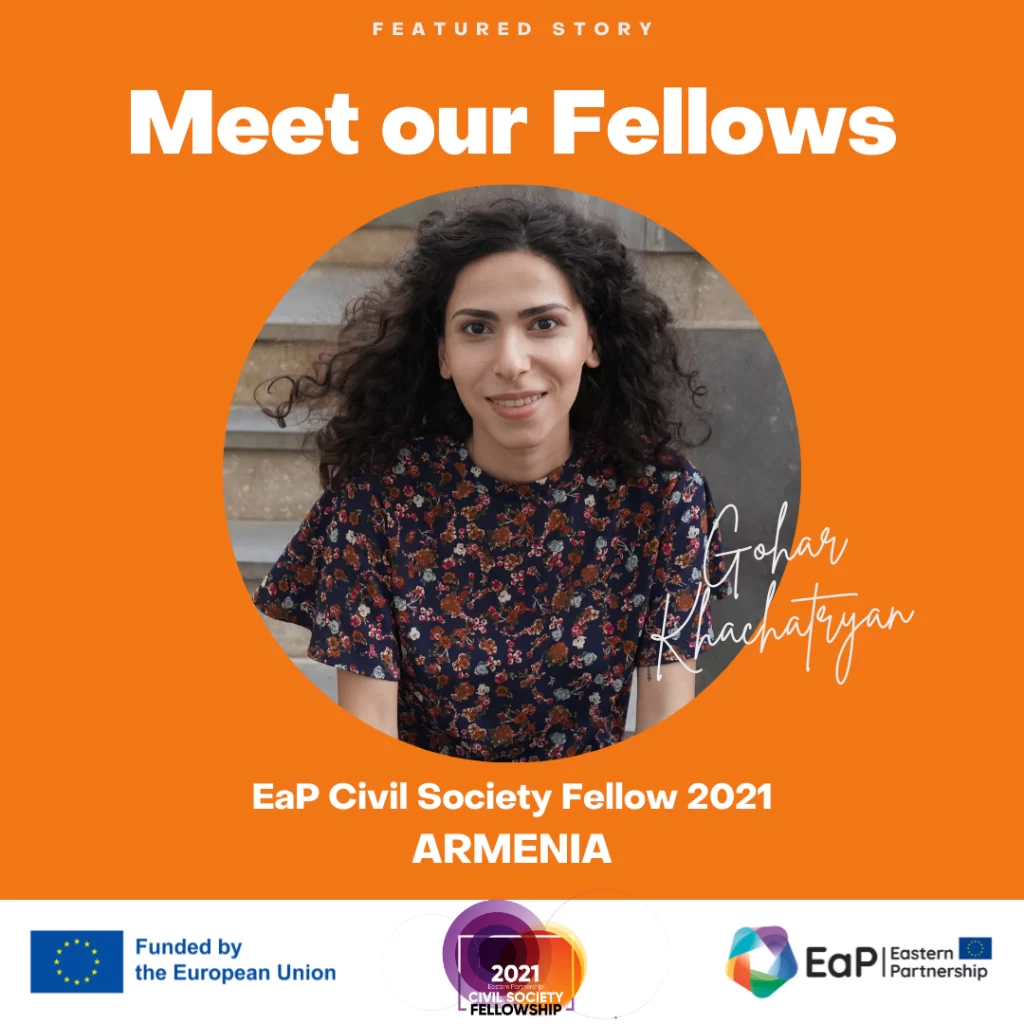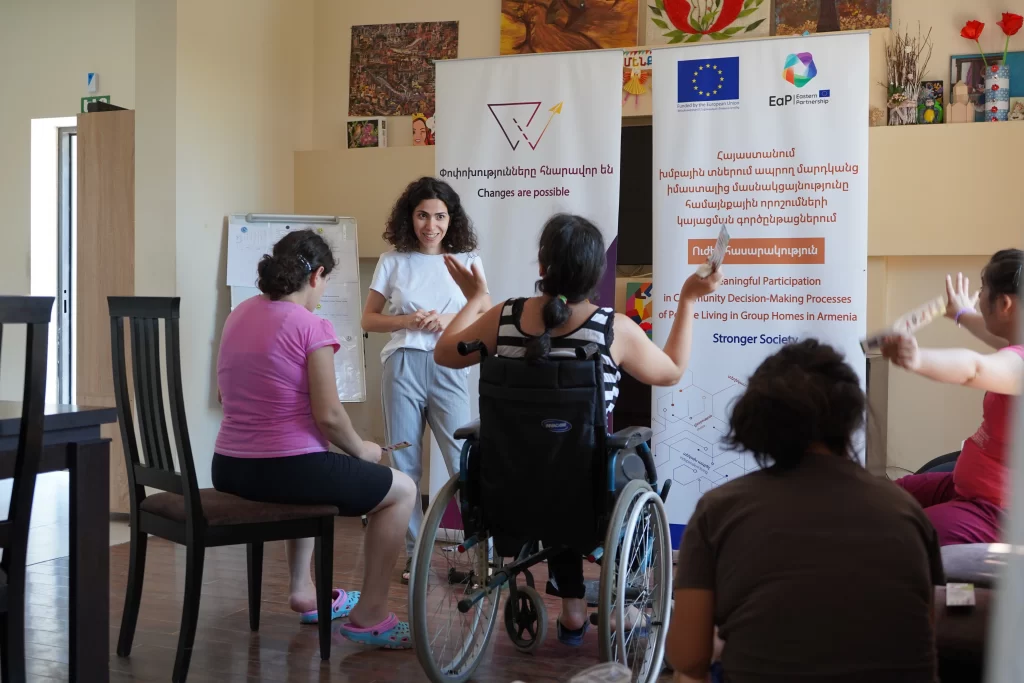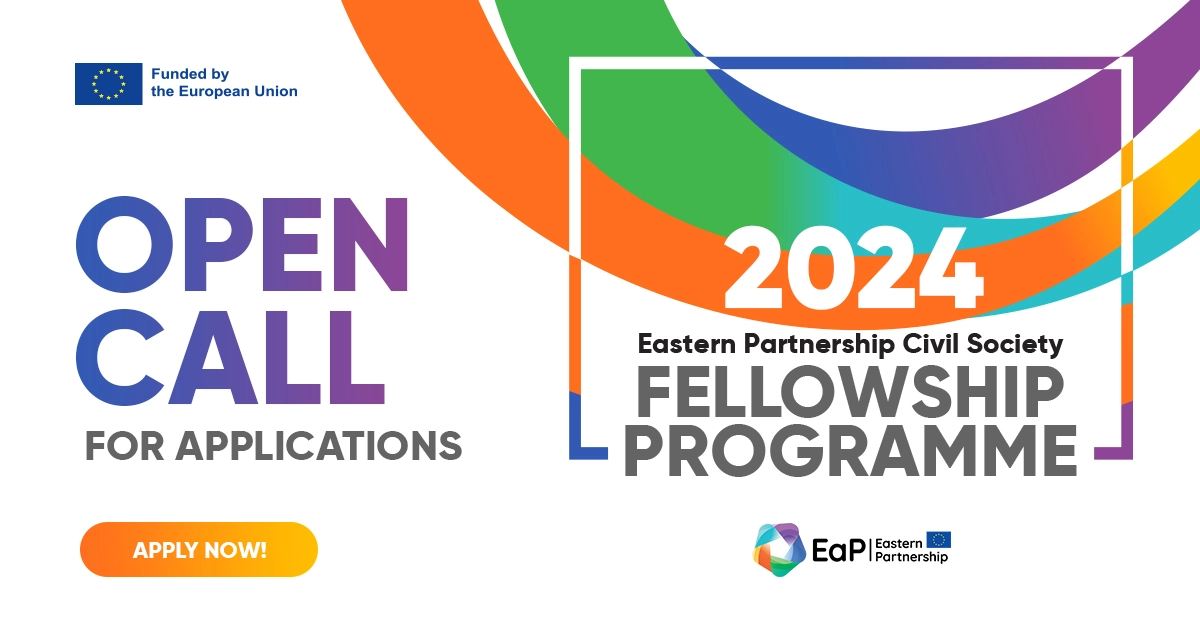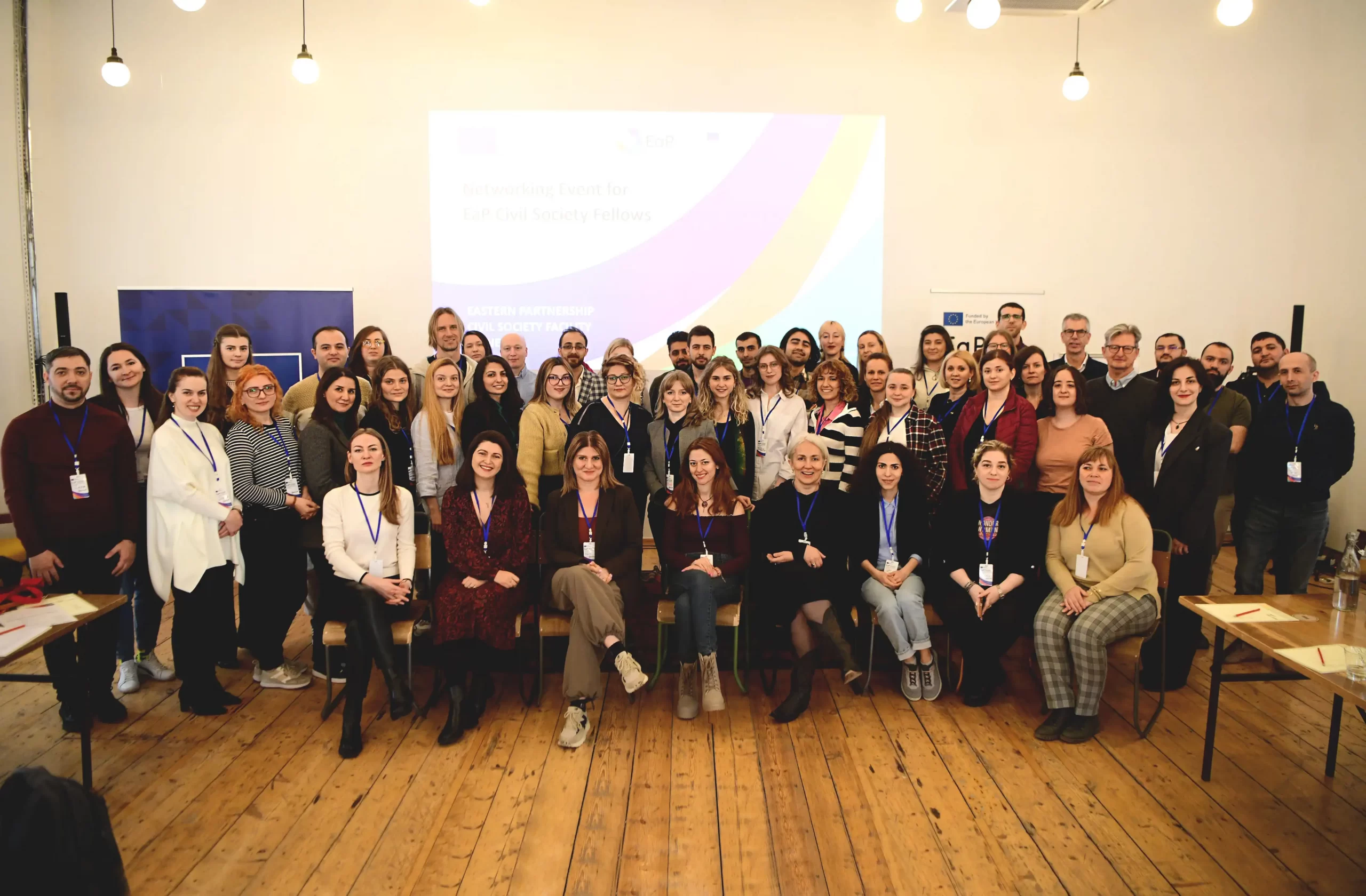In parallel with academic studies, with a MA in Social Work and a nearly completed Doctorate in Sociology, Gohar Khachatryan has charted her civic activism through a range of CSOs and Thinktanks in her native Armenia since 2016. She grew up in a provincial town and through voluntary work with a local CSO began to understand how vulnerable groups often have their rights ignored or abused. While pursuing her academic goals Gohar had the opportunity to study the dynamics of anti-discrimination. From 2018 to 2019 Gohar was a Research Fellow with the Public Policy Institute and under an EU-funded project ‘Pursuing Positive Change Through Empowering CSOs’ she analysed methods and toolkits for protecting against discrimination. Later, in 2022, Gohar spent time in Austria, supported by an Erasmus+ action, exploring mechanisms and practices for the prevention of gender-based violence and learning from challenges in the management of mental health services.
“When the call’ for applicants for the Civil Society Fellows came out in the second half of 2022, I saw a great opportunity for making a positive contribution to promote community-based approaches to mental healthcare in Armenia.”
Accordingly, Gohar set about to evaluate the policies and practices used in the establishment and operations of the first four innovative, post-Soviet ‘group homes’ in Armenia. These are residential homes for citizens who require support on specific mental health issues. The homes, in the regions of Ararat, Kotayk, Lori, and the capital Yerevan, were initially established though programmes of international organisations and now jointly run with the Ministry of Labour and Social Affairs and cooperation with the local authorities. The long-term aim of the ‘homes’ is to support mental health sufferers to live independent lives in the community. As such, Gohar used her fellowship to look at the progress in a particular area – the extent to which the residents of the ‘group homes’ participate in local decision-making processes – and to facilitate a fully participatory research process involving the residents, the staff and management of the homes.
As a result of her fellowship, Gohar has helped to create a degree of momentum towards the goal of having ‘independent living’ as the guiding policy principle on mental healthcare provision. Having pioneered research on this subject, she has created a space for further research and investigation, and through debate on her research paper has ensured that the Ministry of Labour and Social Affairs will endorse the paper’s recommendations. Furthermore, the Ministry for Territorial Infrastructure has agreed to disseminate the report to its local government communities in Armenia with the intention of inspiring them to take action to be more inclusive in their decision-making.
Download the full Research Report in Armenian:
Are Community Decision-Making Processes Inclusive for a Person with a Disability?
Download the Summary of the Research Report in English:
Are Community Decision-Making Processes Inclusive for a Person with a Disability?
With regard to the rights-holders in these ‘group homes’ Gohar has also noted positive changes. Residents are now aware of their rights and the management of the homes have a better understanding of how they can improve the protection of those rights. For example, there had been a previous practice for the management of the ‘group homes’ to confiscate and safeguard the passports of residents. But, through the consultative activities of Gohar’s research, residents and staff were able to learn about the importance and usefulness for residents to keep their own passports and consequently three of the ‘group homes’ have changed their policy on this issue.
Gohar also reported that there were other bright moments generated by the interaction with the residents. During the fellowship project Gohar wanted to create some visual products (posters and flyers) to raise awareness and promote the findings of the research.
“To do this we had a designer to come up with some visual drafts and then we showed these to the residents to ask for their opinions and ideas on how to finalize the products. The posters and flyers were duly made and at the fellowships final event the residents of the ‘group homes’ saw these outputs and were so pleased to see their ideas and suggestions incorporated. This was really empowerment in action.”
Gohar will be continuing her mission to support the protection of the rights of women and men with mental health issues and more broadly engage in the defence of rights of other vulnerable groups. “Being part of civil society is paramount to this process as it means that I can investigate and advocate without the restraints that may otherwise come if I was a State employee”. As part of this mission, Gohar, with other like-minded colleagues, set up a platform called ‘Change’. Gohar hopes that this organisation will be an effective addition to the rights protection architecture in Armenia and is proud that its first advocacy action was to promote the findings from her fellowship project.
Find other Featured Stories of our EaP Civil Society Fellows here.
Background information:
Gohar Khachatryan is one of the Fellows of the Eastern Partnership Civil Society Fellowship programme funded by the European Union. Its main objective is to support civil society activists or civically minded people from Armenia, Azerbaijan, Belarus, Georgia, Moldova and Ukraine who demonstrate a deep commitment to leading positive social change in their communities. The Eastern Partnership Civil Society Fellowship programme has been running since 2017, and now, in 2024, the Fellowship alumni has 200 Fellows from across the six countries of the Eastern Partnership. Details about the Fellows and their Fellowship projects can be found here.






